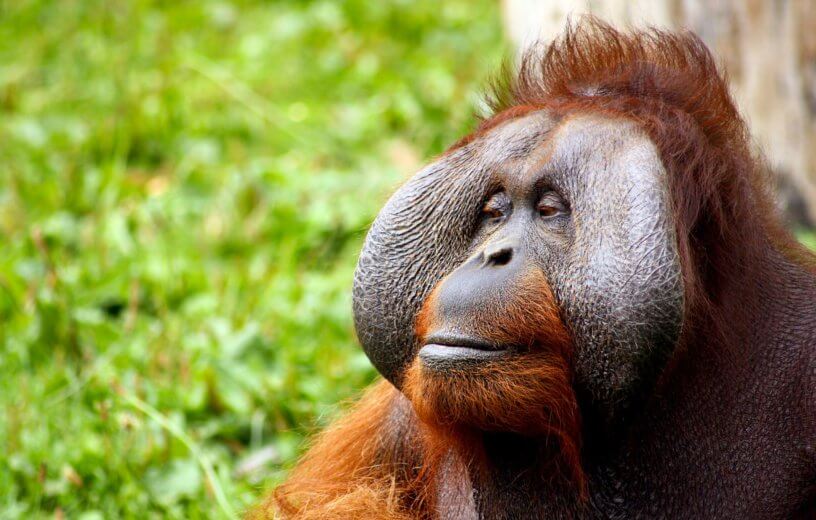EXETER, England — Orangutans are known to be bright and resourceful relatives of humans, but who knew some were as keen as pharmacists? In a recent study, scientists discovered the primates on the island of Borneo using medicinal plants to help treat inflamed joints and muscles.
Researchers say the Bornean orangutans were actually found using the same treatment used by indigenous humans on the large Indonesian island. The Orangutans were observed in the island’s Sabangau Forest. Scientists had been documenting the apes there since 2003, collecting more than 20,000 hours of observational data.
The research team caught the orangutans using a plant known as Dracaena cantleyi to rub on their achy joints and muscles on seven separate occasions. They also spotted one particular orangutan, named Indy, chewing on the plant. Indy rubbed the ensuing lather produced by the plant on her upper left arm for about seven minutes before disposing of the plant’s uneaten leaves.
“This is very exciting news as it confirms self-medication in orangutans, the first report of self-medication in an Asian ape, and for the first time, to our knowledge, the external application of an anti-inflammatory agent in animals,” says the study’s lead author, Dr. Helen Morrogh-Bernard of the University of Exeter, who is Co-Director of Borneo Nature Foundation, in a release.
Morrogh-Bernard says the behavior was observed mostly among adult female orangutans, likely because they battle sore muscles from carrying their infants on them as they navigate the forest. Young orangutans typically stay with their mothers for about seven years until they’re capable of surviving on their own.
“This new finding highlights the importance of tropical forests for medicinal plants, but more research into the practical uses of plants is needed,” the authors write. “It also opens up the question as to what other plants orangutans may use for medicinal purposes, a topic we know very little about.”
The full study was published Nov. 30, 2017 in the journal Scientific Reports.
